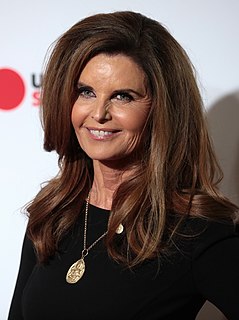A Quote by Andrew Gelman
If someone does a study which, for statistical reasons, I think is hopelessly underpowered or nonidentified, my best and most useful advice will not be tips on how to calculate p-values better, or how to construct an explanation for some particular data pattern. Rather, my advice will be to start over, to reconsider what you think you already know, maybe to question some prominent work in your subfield, and quite possibly to think a lot harder about measurement, and about the relation of your data to your underlying constructs of interest.
Quote Topics
About
Advice
Best
Better
Calculate
Construct
Constructs
Data
Does
Explanation
Harder
Hopelessly
How
Interest
Know
Lot
Maybe
Measurement
Most
Over
Particular
Pattern
Possibly
Prominent
Question
Quite
Rather
Reasons
Reconsider
Relation
Some
Someone
Start
Statistical
Study
Think
Tips
Underlying
Useful
Values
Which
Will
Work
Your
Related Quotes
When you are writing a spoken word poem, the tools you're working with are your voice, your body, how it's going to sound to someone when you're saying it out loud. Which is different from when you're writing it on the page. That toolbox becomes how does this look visually on the page, how does this read among pages, how is this in relation to poems that are before it or after it. I don't think one is better or more successful than the other. You've just gotta think about "what are the tools I'm using, and how are they most effective in this form?"
You have to imagine a world in which there's this abundance of data, with all of these connected devices generating tons and tons of data. And you're able to reason over the data with new computer science and make your product and service better. What does your business look like then? That's the question every CEO should be asking.
Chunking is the ability of the brain to learn from data you take in, without having to go back and access or think about all that data every time. As a kid learning how to ride a bike, for instance, you have to think about everything you're doing. You're brain is taking in all that data, and constantly putting it together, seeing patterns, and chunking them together at a higher level. So eventually, when you get on a bike, your brain doesn't have to think about how to ride a bike anymore. You've chunked bike riding.
We get more data about people than any other data company gets about people, about anything - and it's not even close. We're looking at what you know, what you don't know, how you learn best. The big difference between us and other big data companies is that we're not ever marketing your data to a third party for any reason.
Instruction, and advice, and commands will profit little, unless they are backed up by the pattern of your own life. Your children will never believe you are in earnest, and really wish them to obey you, so long as your actions contradict your counsel... Think not your children will practise what they do not see you do. You are their model picture, and they will copy what you are... will seldom learn habits which they see you despise, or walk in paths in which you do not walk yourself.
Maybe you should think about the choices in your life, how someone can come and spit some kind of game to you and make you doubt every single thing that is your life, your relationship, your appearance, your job, your ambitions, your marriage, and how those thoughts can lead to choices and behavior that you never thought that you were capable of.
Read Becoming a Writer by Dorothea Brande. Then do what it says, including the tasks you think are impossible. You will particularly hate the advice to write first thing in the morning, but if you can manage it, it might well be the best thing you ever do for yourself. This book is about becoming a writer from the inside out. Many later advice manuals derive from it. You don't really need any others, though if you want to boost your confidence, "how to" books seldom do any harm. You can kick-start a whole book with some little writing exercise.
There's fantasies about what heaven is like and who Satan is and why you shouldn't masturbate or why you should vote Republican. It's funny because it's an election year and their news broadcasts are constantly talking about "Vote Republican". I think that they think they're being subtle about it, but that's definitely not the case. So I'm like, "What does this have anything to do with the nice advice you were giving about how to live your life, how to get along with your spouse etc?"





































